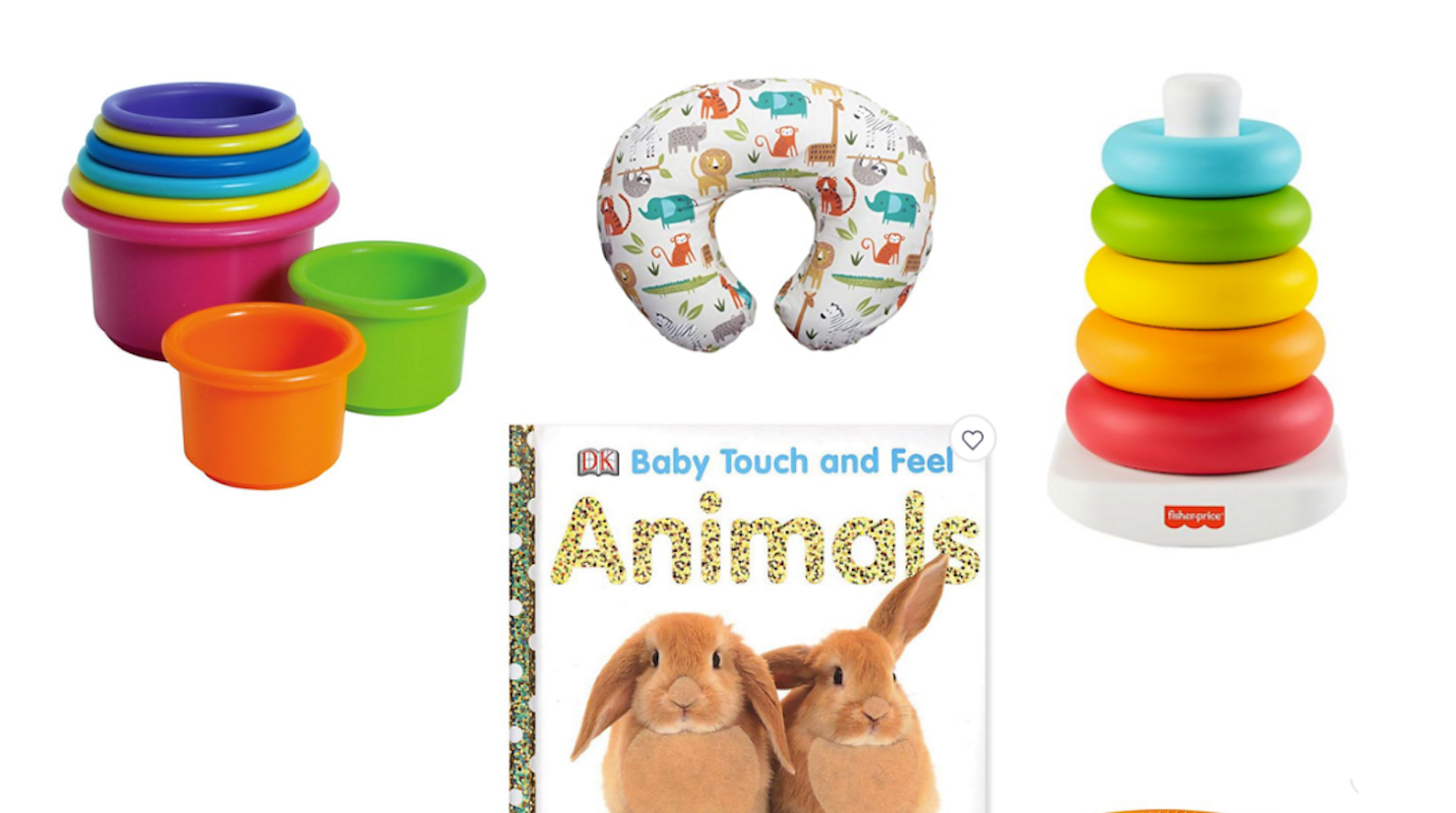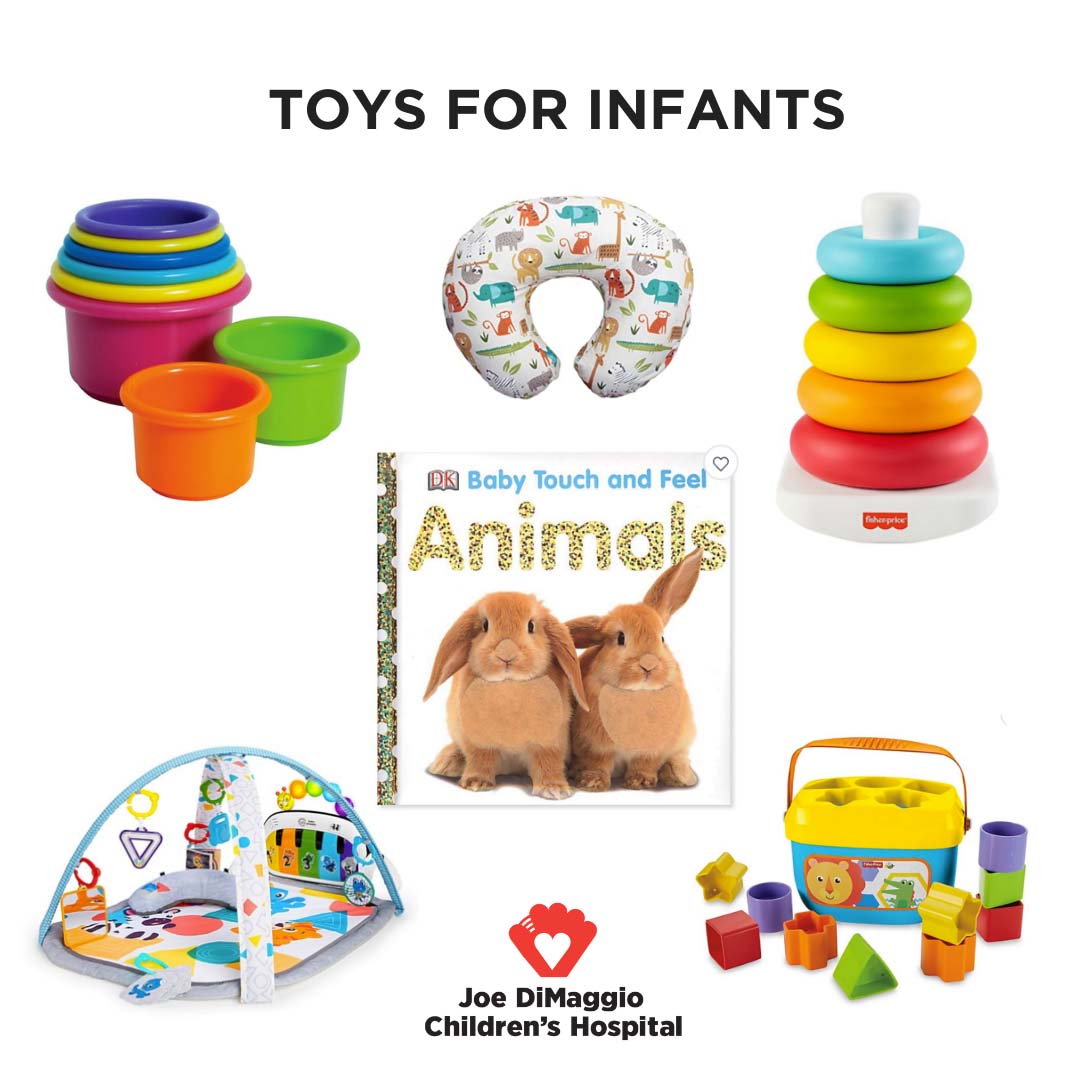Toy Shopping Tips
December 05, 2020

“Shakes a rattle. Bangs toys. Stacks blocks.”
These are some behaviors an occupational therapist looks for during a typical pediatric evaluation. These skills represent milestones and the underlying neuro-motor development involved. Play is a child’s primary occupation and essential for building thinking skills for learning.
Play affects physical, emotional, social and cognitive development in children. Most people think play happens naturally and that all kids know how to play from the moment they wake up to the moment they fall asleep.
Play, for most children will follow a developmental sequence, however the experiences of a child with special needs may follow an altered sequence because skill development may take longer. Children learn about their environment through sensory exploration, observation and experimentation, and toys help provide opportunities for trial and error in the simplest of ways.
You may be wondering, do electronic toys have any added benefits compared to more traditional mechanical toys? There are many research findings in the field of child development, concurring that there was less vocabulary development and less back and forth conversation during electronic toy play compared to books and traditional toys.
For the purpose of early development, the focus will be more traditional mechanical toys as well as parents’ involvement in providing a language-rich play environment for their child.
Checklist for Toy Shopping
The American Occupational Therapy Association (2011) created a to-do list called “How to Pick a Toy: Checklist for Toy Shopping” to help parents select the right toys for their child. This checklist will help parents analyze toys:
- Appropriateness for age
- Durability
- Usage in more than one way
- Sensory opportunities
- Usage in more than one place
- Usage in more than one position
- Involvement of both hands
- Ability to have moving parts/buttons/switches
- Ability to encourage thinking/problem solving
- Ability to promote communication
- Toy appeal
- If it is worth the cost
The right toy can help support a child’s development and build confidence, all while being fun. Occupational Therapy practitioners are skilled at evaluating a child’s developmental strengths and needs and selecting toys that provide the “just right” challenge (AOTA, 2011).
From babies to toddlers to preschoolers, here are some top toy options:

Toys for Infants
Toys that promote reaching, grasping, manipulation, and encourage tummy time, rolling, sitting and crawling, such as:
- Boppy cushion and an activity play mat
- Musical instruments
- Rattles
- Ring links
- Ring stackers
- Shape sorters
- Soft blocks
- Stacking cups
- Suspended toys

Toys for Toddlers
Multi-sensory play that encourages the development of fine motor skills, gross motor skills, language skills, critical thinking and problem solving. This is also where creative play using imagination and story-telling develop. Some examples of toys at this age would be:
- Doodle boards
- Dress up clothing
- Interlocking blocks
- Lacing cards and beads
- Magnetic letters
- Puzzles
- Play kitchens/tool bench
- Play food
- Play tents and riding toys
- Shopping carts
- Sports ball
- Standing easels
- Tea party set
- Trampoline with stability bar

Toys for Preschoolers
Games and activities that promote independence, expand knowledge and continue to build fine motor skills, gross motor skills, language skills, critical thinking and problem solving, such as:
- ABC, number, and shape learning toy
- Basketball stand
- Bean bag toss game
- Bicycle and scooters
- Board games
- Bowling set
- Color sorting toys
- Coloring
- Construction toys
- Doll-houses
- Musical instruments
- Painting
- Puzzles
- T-ball set
- Train sets
- Water and sand tables
This selection of developmental toys will help your child gain the skills and habits they will carry with them throughout their life. Occupational therapists help children of all ages and abilities. If you need more information or are interested in a skilled occupational therapy evaluation, please contact the Joe DiMaggio Children's Hospital Rehabilitation Center. We have locations in Coral Springs, Hollywood, Pembroke Pines, Miramar and Wellington.

